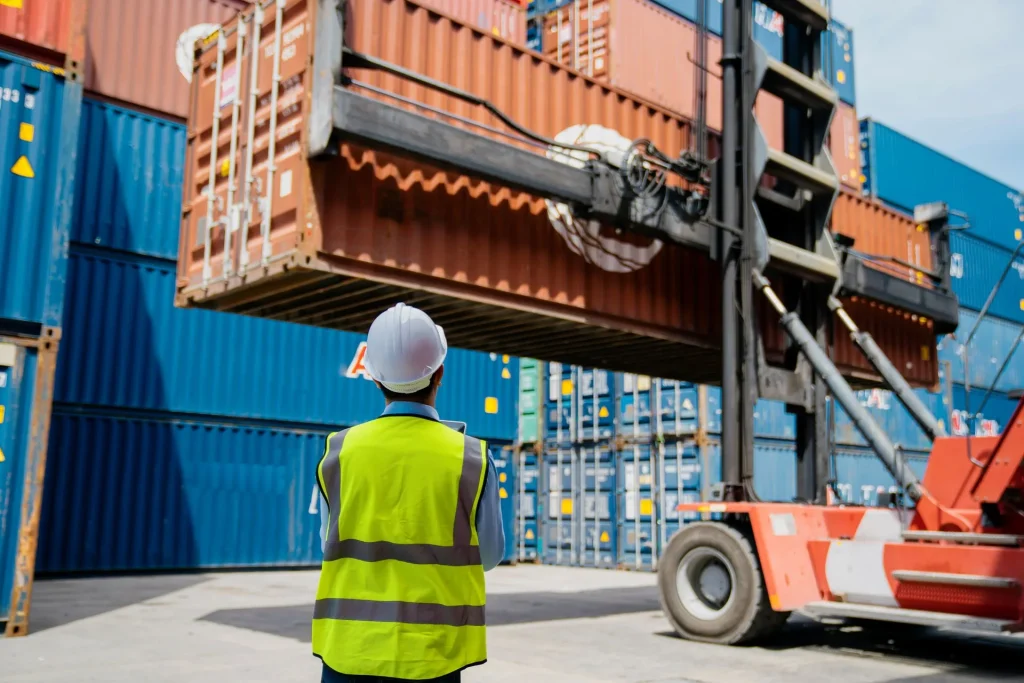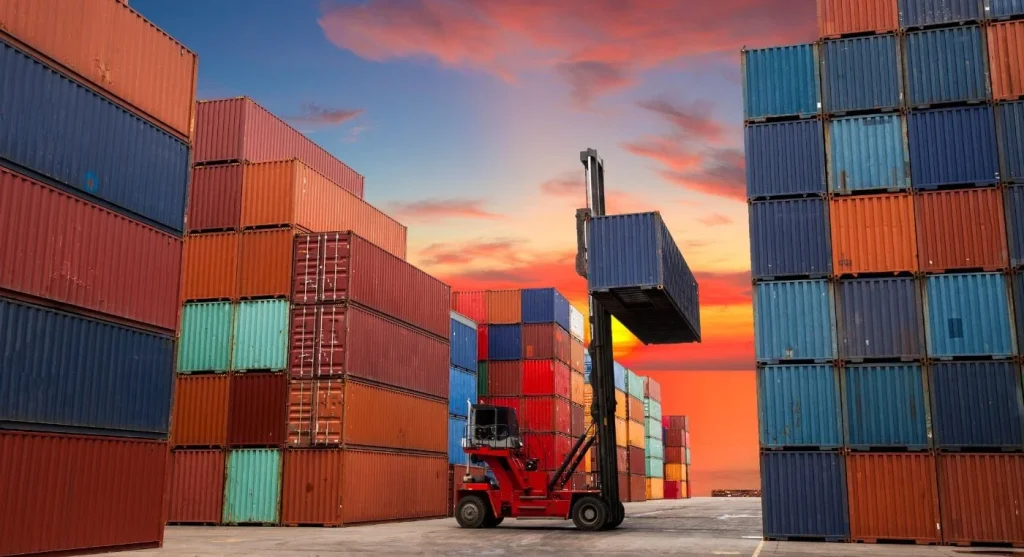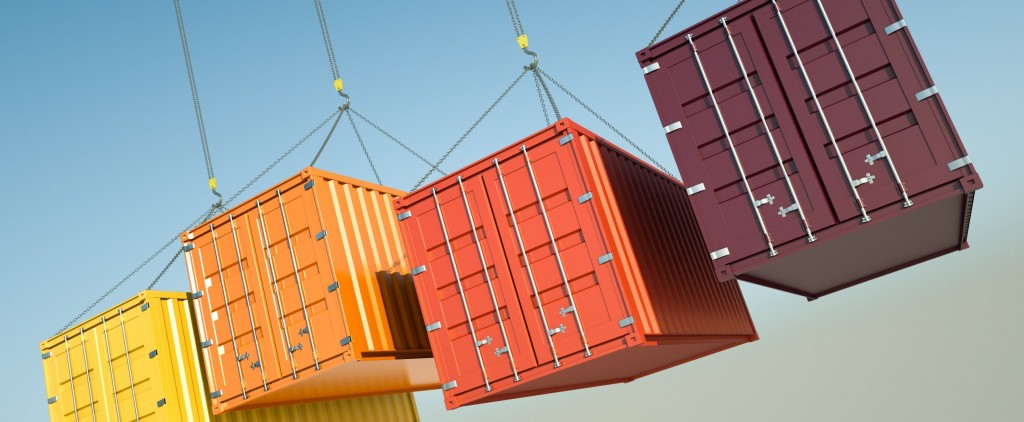Container transportation has become a cornerstone of the global supply chain, especially in Mexico. The country’s maritime and land connectivity facilitates the movement of goods between Latin America, the United States, and other regions worldwide. If your company needs to transport large quantities of containers, selecting the right provider and understanding key factors in the process is essential.

What Is Container Transportation and Why Is It Essential?
Container transportation involves moving large volumes of goods in standardized units, optimizing handling, security, and space utilization. This method is especially useful for companies needing efficient and cost-effective solutions for moving large shipments.
In Mexico, container transportation has grown significantly due to international trade and the distribution needs of industries such as manufacturing, agriculture, and automotive. Containers protect goods from external factors and simplify loading and unloading processes, which is critical for businesses managing regular or massive shipments.
Types of Container Transportation in Mexico
Mexico offers various options for container transportation, each suited to different cargo needs:
- Maritime Container Transportation: Best for long distances and large volumes, maritime transport is the most cost-effective option for shipping containers across continents. Key Mexican ports such as Manzanillo, Lázaro Cárdenas, and Veracruz connect to major trade routes. This option is ideal for businesses shipping large volumes without strict time constraints.
- Land Container Transportation: Flexible and fast, land transport is reliable for distribution within Mexico and to the U.S. Businesses can use road or rail transport, or a combination of both. It’s suitable for domestic or short international routes requiring faster delivery.
- Air Container Transportation: Unmatched in speed, air transport is crucial for urgent shipments. This option is ideal for businesses needing to move high-priority products or meet tight deadlines.
Ready to streamline container transportation for your business? Contact Cedimex for a personalized quote and learn about our large-scale shipment solutions. Our team of experts ensures efficient and secure logistics tailored to your needs.
4 Key Factors in Container Transportation in Mexico
Choosing the right provider and transportation type involves evaluating critical aspects like cost, delivery time, and cargo security.
- Costs and Budget: Container transportation costs depend on factors such as distance, transportation mode, and container type. Assess your budget and compare options to find the most cost-effective solution without compromising quality.
- Cargo Type and Volume: The amount and type of cargo determine the container size and transport mode. For large shipments, companies typically use 20- or 40-foot containers, depending on the required space.
- Cargo Security and Monitoring: Ensuring cargo safety is essential, especially for valuable or sensitive goods. Choose a provider offering real-time tracking systems and robust security measures.
- Provider Experience and Reputation: An experienced and reputable provider is key to efficient transportation. Companies specializing in container transportation in Mexico have the infrastructure to handle large volumes and respond quickly to unforeseen challenges.

Documentation and Customs Procedures for Container Transportation
International container transportation requires compliance with specific regulations and customs procedures. In Mexico, adhering to these requirements prevents delays and additional costs.
Key Documents:
- Bill of Lading (B/L): Establishes ownership and provides shipment details.
- Commercial Invoice: Describes the transported goods and their value, required for customs clearance.
- Certificates of Origin: Grants tariff benefits for goods under trade agreements.
Best Practices for Efficient Container Transportation in Mexico
To optimize container transportation, particularly for large shipments, companies should implement strategies that streamline the process:
- Plan Ahead: Early planning ensures container availability and access to competitive rates. Long-term agreements can secure space and preferred pricing for businesses managing high volumes.
- Use Tracking Technology: Tracking systems provide real-time updates on cargo location and conditions, enhancing security and minimizing delays.
- Efficient Coordination at Loading and Unloading Points: Proper coordination at these points avoids delays. Ensure containers are ready and staff are trained to follow loading and unloading protocols.
3 Advantages of Container Transportation for Large Shipments
Container transportation is an ideal solution for businesses moving large quantities of goods regularly or in bulk. Key benefits include:
- Efficiency in Handling Large Volumes: Standardized containers streamline the handling of large shipments, reducing loading and unloading times and improving overall logistics.
- Reduced Handling and Risk of Damage: Contained goods face less direct handling, minimizing the risk of damage or loss.
- Flexibility for Various Product Types: With options like refrigerated, heavy-duty, and open-top containers, businesses can safely transport a wide range of goods, from perishables to heavy machinery.

By carefully evaluating transportation types, provider experience, and logistics best practices, your company can achieve efficient and cost-effective container transportation in Mexico. Ensure your goods arrive on time and in perfect condition by partnering with a reliable provider.
